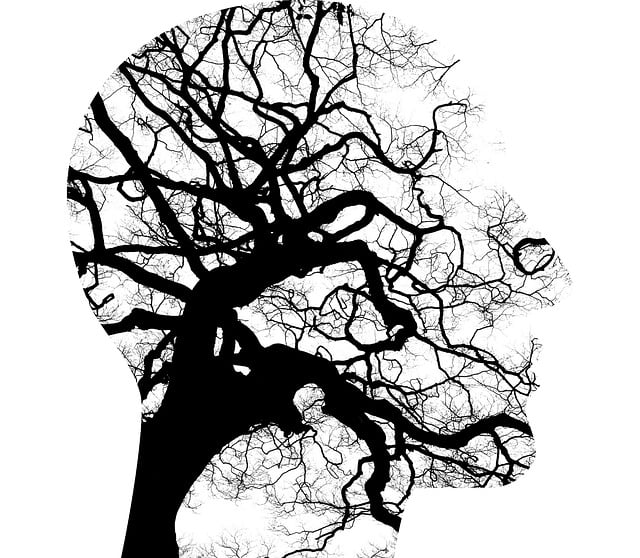Aurora Bilingual Therapy is a culturally sensitive approach to mental health data collection, incorporating evidence-based practices and advanced data analysis techniques. They use a combination of qualitative and observational methods to gather rich insights from diverse populations, enabling personalized therapy plans. Through sophisticated algorithms, they identify trends like heightened anxiety in urban young adults, informing tailored strategies and policy initiatives for improved global mental health support.
Mental health data analysis is a complex yet crucial process in understanding and improving individual well-being. This article explores innovative strategies, with a focus on the Aurora Bilingual Therapy (ABT) approach, for interpreting mental health data. We delve into effective data collection methods, from qualitative to quantitative techniques, and advanced analysis tools that reveal hidden patterns. By examining these methodologies, we can interpret results accurately, enabling the development of personalized interventions, ultimately enhancing the effectiveness of ABT treatments.
- Understanding Mental Health Data: The Aurora Bilingual Therapy Approach
- Data Collection Methods for Comprehensive Assessment
- Advanced Analysis Techniques to Uncover Insights
- Interpreting Results and Developing Tailored Interventions
Understanding Mental Health Data: The Aurora Bilingual Therapy Approach

Understanding Mental Health Data requires a nuanced approach that resonates with diverse populations. This is where the Aurora Bilingual Therapy Approach shines. By recognizing the significance of language and culture in mental health, this method offers a comprehensive framework for analyzing and interpreting data from various sources. It incorporates evidence-based Compassion Cultivation Practices and Communication Strategies, ensuring sensitive and effective interactions with individuals from different linguistic backgrounds.
The Aurora Bilingual Therapy Approach is particularly valuable in the context of the Mental Wellness Podcast Series Production. By integrating multiple languages, this approach not only enhances accessibility but also facilitates deeper insights into mental health issues across cultures. Through bilingual therapy sessions, practitioners can gather rich data that reflects the unique experiences and perspectives of diverse communities, ultimately enriching our understanding and improving mental health support globally.
Data Collection Methods for Comprehensive Assessment

In the realm of mental health data analysis, understanding the nuances of various data collection methods is paramount for comprehensive assessment. Aurora Bilingual Therapy emphasizes the importance of diverse techniques to capture the full spectrum of an individual’s psychological well-being. This includes qualitative approaches like structured interviews and open-ended questionnaires, which provide rich insights into personal experiences and emotional states. By employing these methods, therapists can uncover subtleties that quantitative measures might miss, ensuring a more holistic understanding of mental health issues.
Additionally, the integration of observational data through public awareness campaigns and social skills training programs offers valuable context. Development of such initiatives not only facilitates the collection of behavioral data but also contributes to mental illness stigma reduction efforts. Public Awareness Campaigns Development plays a crucial role in enhancing understanding and fostering empathy within communities, creating an environment conducive to early intervention and effective treatment. This multifaceted approach ensures that data collection is not just comprehensive but also culturally sensitive and socially progressive.
Advanced Analysis Techniques to Uncover Insights

In the realm of mental health data analysis, advanced techniques like machine learning and natural language processing play a pivotal role in uncovering hidden insights. At Aurora Bilingual Therapy, we leverage these innovative tools to gain a deeper understanding of patient experiences and treatment outcomes. By applying sophisticated algorithms, our experts can identify patterns and trends within vast datasets, enabling more precise diagnoses and personalized therapy plans.
This approach not only enhances the quality of care but also supports evidence-based practices. For instance, through meticulous data mining, we can assess the effectiveness of specific interventions like Social Skills Training or Inner Strength Development. Moreover, the insights derived from such analyses contribute to Mental Health Policy Analysis and Advocacy, shaping strategies that address societal mental health challenges more effectively.
Interpreting Results and Developing Tailored Interventions

Interpretation of data is a crucial step in mental health analysis, enabling professionals to gain valuable insights into client needs. By examining trends, patterns, and correlations within the collected information, therapists at Aurora Bilingual Therapy can identify specific challenges faced by individuals or communities. This process involves both quantitative and qualitative methods, allowing for a comprehensive understanding of mental health issues. For instance, analyzing survey responses alongside demographic data may reveal heightened anxiety levels among young adults in urban areas, highlighting a need for targeted interventions.
With these insights, therapists can develop tailored strategies, such as Empathy Building Strategies, to address the unique barriers to mental well-being. This personalized approach is essential in effective treatment planning. For example, creating supportive environments and implementing Mental Health Policy Analysis and Advocacy initiatives can foster better access to resources for vulnerable populations. Ultimately, by interpreting data responsibly, Aurora Bilingual Therapy aims to not only relieve symptoms of anxiety but also contribute to broader mental health policy discussions, ensuring a more inclusive and responsive support system.
Mental health data analysis is a complex yet powerful tool, and with advanced techniques like those offered by the Aurora Bilingual Therapy Approach, professionals can gain profound insights. By combining comprehensive data collection methods with sophisticated analysis, healthcare providers can better understand individuals’ mental health landscapes. This enables them to develop tailored interventions that address specific needs, ultimately enhancing patient outcomes and quality of life. The Aurora Bilingual Therapy method serves as a valuable framework for navigating this intricate process, ensuring more effective support for those seeking mental wellness.














